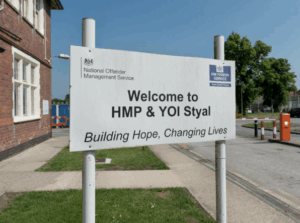The scale of the tragedy in Libya has become apparent as the death toll from the catastrophic flooding has risen to a staggering 11,000 lives lost, with an additional 20,000 individuals still unaccounted for, according to reports from the Red Crescent in Derna. This disaster unfolded following the rupture of two dams on a tragic Sunday.
Tragically, the aftermath of the flooding has left approximately 2,000 bodies adrift in the sea, while rescue workers tirelessly recover the deceased from the wreckage left in the wake of the deluge.
The United Nations’ World Meteorological Organisation has expressed its deep concern, emphasising that many of these tragic deaths could have been prevented. The organisation pointed out that timely warnings should have been issued, leading to evacuation measures, which could have mitigated most of the human casualties.
Prominent Libyan politician Guma El-Gamaty has described the flooding as a disaster that was waiting to happen, raising questions about the state of preparedness and infrastructure resilience in the region.
In response to this humanitarian crisis, the World Health Organisation (WHO) has swiftly mobilised support. Dr. Tedros Adhanom Ghebreyesus, the WHO’s chief, has announced the release of $2 million (£1.6 million) from the organisation’s contingency fund to aid the emergency response in Libya. Furthermore, a substantial shipment of 28 metric tonnes of trauma, surgical, and emergency supplies is en route to the affected areas from the WHO’s logistics hub in Dubai. The WHO has activated its network of emergency medical teams, and eight countries and organisations have offered their assistance, with a French field hospital already deployed in the affected region.
Amid the ongoing rescue and relief efforts, the United Nations has issued an urgent appeal for Libya, with the aim of raising $71.4 million (£57.3 million) in aid. The UN’s call for assistance underscores the heightened concern that without immediate and adequate aid, the situation could deteriorate further, potentially leading to severe illness and more casualties. The appeal seeks to provide support to over a quarter of the 884,000 individuals directly impacted by the disaster.
UN assessments have revealed that the flooding has affected 2,200 buildings in Derna, where two dams collapsed, and described the situation in the submerged city of Sousse as “critical.”
Germany has prepared foreign aid, including supplies for 1,000 people, to be flown into Libya. This aid includes essential items such as tents, camp beds, blankets, sleeping bags, and small power supplies, all aimed at providing shelter and assistance to those affected by the devastating floods.





































